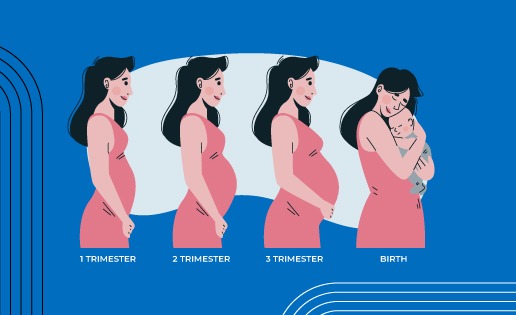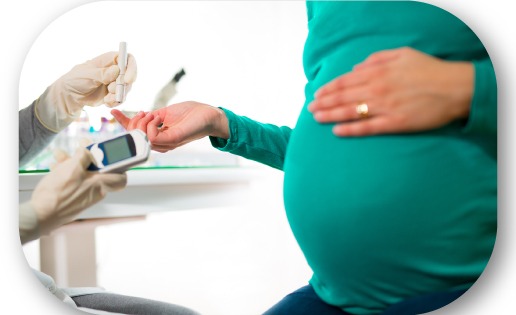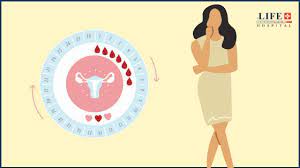Specialized center for Urinary Leakage
Yeast infections (also known as candidiasis) are common infections caused by Candida albicans yeast, which is a type of fungus.
THE LIFE PLUS HOSPITAL Care is COVID 19 Safe
- Our Hospital premises are COVID safe
- Regular sanitization of clinic & hospital premises
- Immediate medical assistance through Online Consultation
Specialized center for Urinary Leakage
Yeast infections (also known as candidiasis) are common infections caused by Candida albicans yeast, which is a type of fungus.
THE LIFE PLUS HOSPITAL Care is COVID 19 Safe
- Our Hospital premises are COVID safe
- Regular sanitization of clinic & hospital premises
- Immediate medical assistance through Online Consultation

Urinary Leakage
Urinary incontinence is the loss of bladder control. This means that you can’t always control when you urinate. Urinary incontinence can range from leaking a small amount of urine (such as when coughing or laughing) to having very strong urges to urinate that are difficult to control. Treatment depends on what’s causing the problem and what type of incontinence you have. If your urinary incontinence is caused by a medical problem, the incontinence will go away when the problem is treated. Kegel exercises and bladder training help some types of incontinence through strengthening the pelvic muscles
Let's Schedule Your Appointment
Urinary Leakage

Urinary incontinence — the loss of bladder control — is a common and often embarrassing problem. The severity ranges from occasionally leaking urine when you cough or sneeze to having an urge to urinate that’s so sudden and strong you don’t get to a toilet in time.
Though it occurs more often as people get older, urinary incontinence isn’t an inevitable consequence of aging. If urinary incontinence affects your daily activities, don’t hesitate to see your doctor. For most people, simple lifestyle and dietary changes or medical care can treat symptoms of urinary incontinence.
Symptoms
Many people experience occasional, minor leaks of urine. Others may lose small to moderate amounts of urine more frequently.
Overview
Types of urinary incontinence include:
- Stress incontinence.Urine leaks when you exert pressure on your bladder by coughing, sneezing, laughing, exercising or lifting something heavy.
- Urge incontinence.You have a sudden, intense urge to urinate followed by an involuntary loss of urine. You may need to urinate often, including throughout the night. Urge incontinence may be caused by a minor condition, such as infection, or a more severe condition such as a neurological disorder or diabetes.
- Overflow incontinence.You experience frequent or constant dribbling of urine due to a bladder that doesn’t empty completely.
- Functional incontinence.A physical or mental impairment keeps you from making it to the toilet in time. For example, if you have severe arthritis, you may not be able to unbutton your pants quickly enough.
- Mixed incontinence.You experience more than one type of urinary incontinence — most often this refers to a combination of stress incontinence and urge incontinence.
Persistent urinary incontinence
Urinary incontinence can also be a persistent condition caused by underlying physical problems or changes, including:
- Hormonal changes and the increased weight of the fetus can lead to stress incontinence.
- Vaginal delivery can weaken muscles needed for bladder control and damage bladder nerves and supportive tissue, leading to a dropped (prolapsed) pelvic floor. With prolapse, the bladder, uterus, rectum or small intestine can get pushed down from the usual position and protrude into the vagina. Such protrusions may be associated with incontinence.
- Changes with age.Aging of the bladder muscle can decrease the bladder’s capacity to store urine. Also, involuntary bladder contractions become more frequent as you get older.
- After menopause, women produce less estrogen, a hormone that helps keep the lining of the bladder and urethra healthy. Deterioration of these tissues can aggravate incontinence.
- Enlarged prostate.Especially in older men, incontinence often stems from enlargement of the prostate gland, a condition known as benign prostatic hyperplasia.
When to see a doctor
You may feel uncomfortable discussing incontinence with your doctor. But if incontinence is frequent or is affecting your quality of life, it’s important to seek medical advice because urinary incontinence may:
- Cause you to restrict your activities and limit your social interactions
- Negatively impact your quality of life
- Increase the risk of falls in older adults as they rush to the toilet
- Indicate a more serious underlying condition
Our Gynecologists who are Treating the Diseases
Why The Life Plus Hospital?
 The Life Plus Hospital is COVID-19 safe
The Life Plus Hospital is COVID-19 safe
Your safety is taken care of by thermal screening, social distancing, sanitized clinics, and hospital rooms, sterilized surgical equipment, and mandatory PPE kits during surgery.
 Medical Expertise With Technology
Medical Expertise With Technology
Our Doctors spend a lot of time with you to diagnose your condition. You are assisted in all pre-assisted Hospitalisation process. We offer advanced laser and laparoscopic surgical treatment. Our procedures are USFDA approved.
 Assisted Surgery Experience
Assisted Surgery Experience
A dedicated Medical Coordinator assists you throughout the surgery journey from insurance paperwork, to free commute from home to hospital & back and admission-discharge process at the hospital.
 Post Natal Care
Post Natal Care
We offer free follow-up consultations and instructions including dietary tips as well as exercises to every patient to ensure they have a smooth recovery to their daily routines.
The Life Plus Hospital in Numbers
Years Of Expertise
Successful Surgeries
Consultation
Success Rate
Our Blogs
OUR GYNECOLOGY CENTER IN BANGALORE
Tell us about your problems and we’ll figure out the best treatment option for you.
Life Plus hospital
Women and Child Care Hospital in Indiranagar | LifePlus Hospital
At Life plus hospital, we offer a comprehensive range of women’s health services. The Department is managed by highly experienced lady gynecological doctors who offer specialized attention and compassionate care for women
Let's Schedule Your Appointment
Urinary Leakage (urine incontinence) Faq's
Urinary incontinence simply means leaking urine. Incontinence can range from leaking just a few drops of urine to complete emptying of the bladder.
- Urgency—Having a strong urge to urinate
- Frequency—Urinating (also called voiding) more often than what is usual for you
- Nocturia—Waking from sleep to urinate
- Dysuria—Painful urination
- Nocturnal enuresis—Leaking urine while sleeping
Urinary incontinence in women can be divided into three main types:
- Stress urinary incontinence (SUI) is leaking urine when coughing, laughing, or sneezing. Leaks also can happen when a woman walks, runs, or exercises.
- Urgency urinary incontinence is a sudden strong urge to urinate that is hard to stop. Women with this type of urinary incontinence may leak urine on the way to the bathroom. If you have an “overactive bladder”, it means that you have symptoms of urgency and frequency that may or may not include incontinence.
- Mixed incontinence combines symptoms of both SUI and urgency urinary incontinence.














